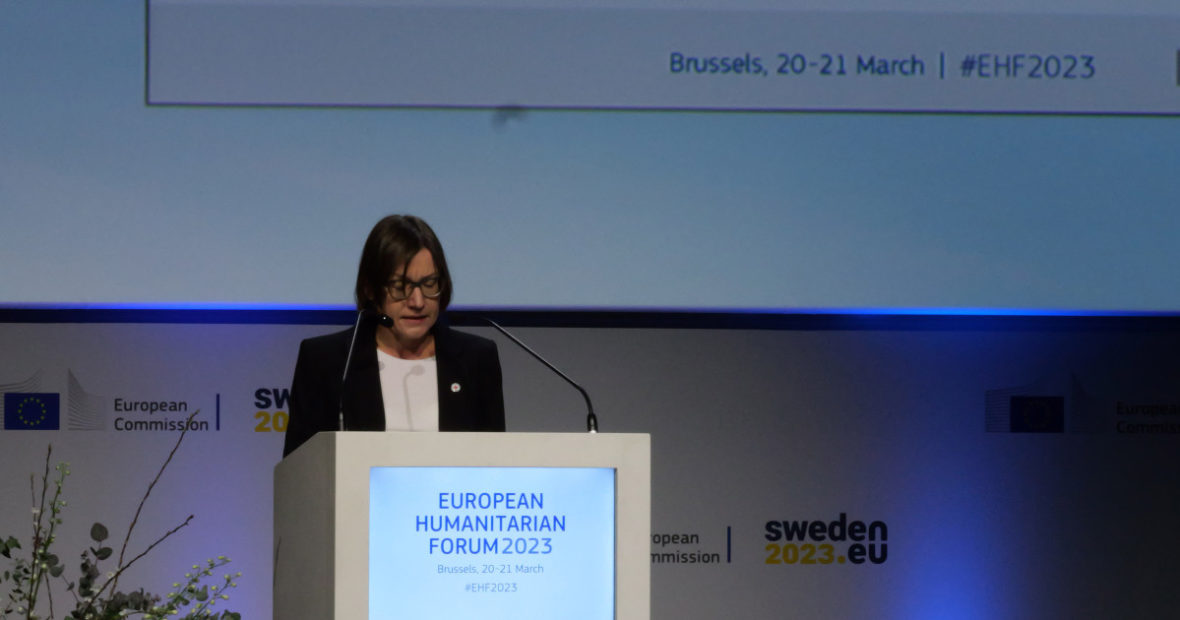Dear Commissioner, dear Ministers,
Excellencies, and dear colleagues,
During the first months as President of the International Committee of the Red Cross, I have witnessed first-hand grievous humanitarian suffering and despair.
In Ethiopia, Mali, Syria, Ukraine and beyond, successive tragedies have left deep-rooted scars.
I have great respect for the task ahead and am acutely aware of our collective responsibility.
It is a basic tenet of humanity – that human life and dignity must be protected.
I wish to open this forum with three main considerations.
First, international humanitarian law exists to prevent senseless suffering.
International humanitarian law is a powerful universal consensus that protects us all.
Every state is bound by the Geneva Conventions. No matter the circumstances that give rise to war, limiting its human cost by all parties to conflicts is a legal obligation.
And all States have an obligation not only to respect, but also to ensure respect for international humanitarian law.
The EU and its member states have given international humanitarian law the prominent place that it deserves in their external action.
I urge you to continue to elevate respect for international humanitarian law as one of your primary political goals.
The integration of international humanitarian law domestically and in foreign policy also must remain a priority for States globally.
Second, principled humanitarian action lies at the heart of alleviating suffering and must be supported.
The ICRC’s mandate and experience are unique.
Our principle of neutrality, and consequent ability to speak to all parties to conflict, show – time and time again:
- That we can secure long term access to those in need and
- That we can influence the behaviors of those who hold power and weapons.
You can protect and support principled humanitarian action – concretely by working towards standing and well-framed humanitarian exemptions in EU autonomous sanctions regimes.
Third, humanitarian needs are dynamic and increasing.
We are doing our part – adapting our response to the changing realities on the ground so we remain an efficient and trusted humanitarian organization.
We mainstream climate adaptation into our responses.
We integrate the opportunities and risks of the digital era.
In protracted crises and hard-to-reach areas, we address the critical gaps in early recovery to restore and maintain essential services, where development actors may not be able to operate.
Yet we cannot do it alone.
Considering the protracted funding gap, people’s needs must guide humanitarian funding decisions, with no crisis left aside.
Humanitarian assistance will neither bring lasting peace nor salvage failing economies.
But, and especially where others can’t operate, the ICRC together with its national and local partners can help build resilience within conflict affected societies, thus enabling pathways to peace and stability.
Today, more than ever, international humanitarian law and principled humanitarian action need champions.
I am confident that the EU and its member states will step up to the challenge.
Thank you.



Comments